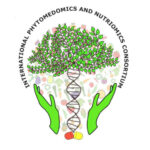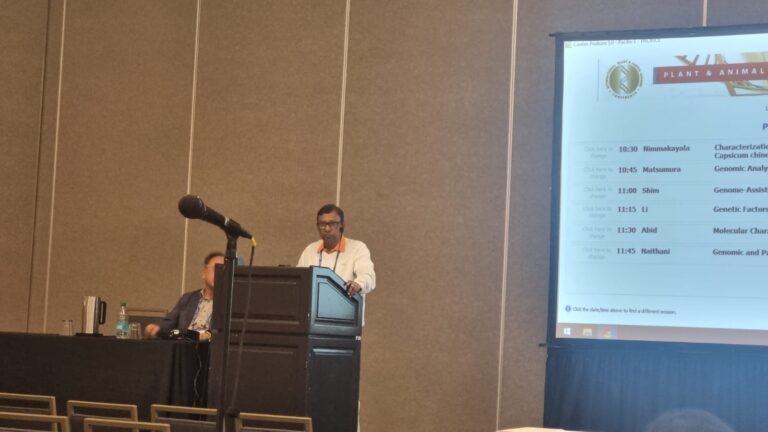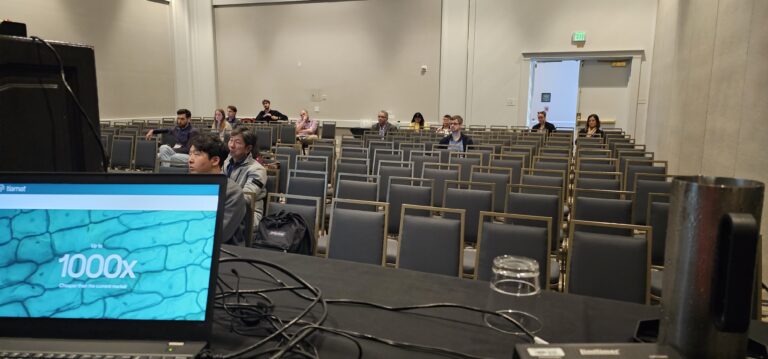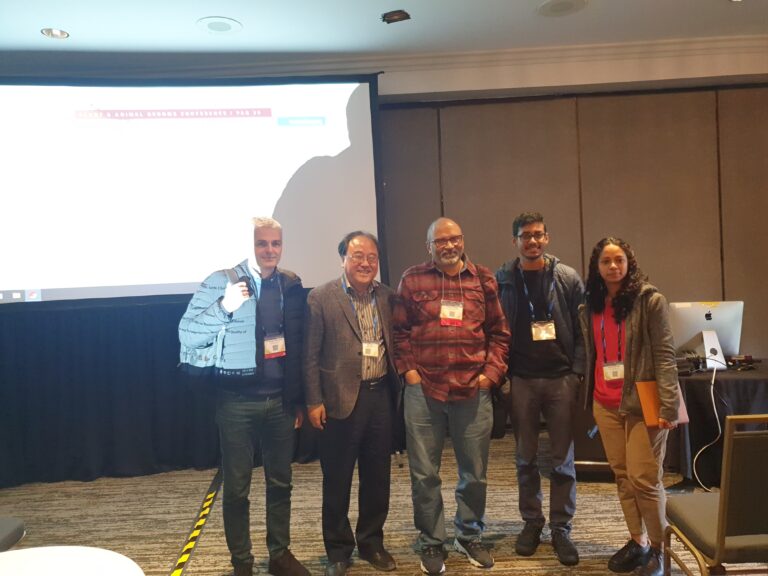2013
Intl. Phytomedomics and Nutriomics Consortium (IPNC)
The incidence rate of several deadly diseases, particularly cancer, diabetes and AIDS, that cause the suffering of 20, 171, and 33 million people, respectively in the world, is highly alarming. Hunger and malnutrition, together affecting over 800 million people, are also aggravating the threat to global human health. Utilization of medicinal plants and nutraceutical crops are potential sources of alternative and complimentary medicines to mitigate these problems. The present world market of herbal drugs and dietary supplements is somewhere in between $20-50 million and is predicted to be at $5 trillion by 2050. Presently, plant-based drugs contribute 50% to clinical drugs. This commercial importance coupled with severe prevalence of the deadly diseases underscores the need for the generation of genetic, genomics, and breeding resources in medicinal plants and functional food crops. Genetic linkage maps for at least two medicinally-active plants, periwinkle and bitter melon, have already been developed. Results on biosynthesis, biotransformation, and metabolic pathways of many therapeutic secondary metabolites have been reported along with structural and functional genomic resources for at least a few plants. Some of these encouraging achievements will be presented by the speakers of this workshop. This will be followed by the second meeting of the International Consortium of Phytomedomics and Nutriomics (ICPN) that will include a comprehensive discussion on drafting the white paper for whole genome sequencing of a model medicinally-active plant and generation of structural and functional genomics resources of a few selected plants; and identification of national and international funding agencies.
Date: Tuesday, January 15, 2013
Time: 10:20 AM-12:30 PM
Room: Royal Palm Salon 4,5,6
Chair:
Chittaranjan Kole
Co-chairs:
Amit Dhingra , Phil Simon and William Spooner
10:20 AM
International Consortium on Phytomedomics and Nutriomics: Retrospect and Prospect
Amit Dhingra, Department of Horticulture, Washington State University
10:30 AM
Application of Sequencing Technology and Bioinformatics to Phytomedicine
William Spooner, Eagle Genomics
10:45 AM
MicroRNAs and MlncRNAs Uncovered by Comprehensive Transcriptome Analysis of Panax ginseng
Meizhen Wang, Institute of Medicinal Plant Development
11:00 AM
Omics of Ashwagandha: The Ayurveda Inspired New Hopes of Health in 21st Century
RS Sangwan, Bio Processing Unit (BPU), DBT, GoI
11:15 AM
Genomic and Biochemical Analyses of Anthocyanin Production in Apple
Steve van Nocker, Michigan State University
11:30 AM
Genetics and Genomics of Nutraceuticals in Grapes
Sara Zenoni, University of Verona; Giovanni Battista Tornielli, University of Verona; Anita Zamboni, University of Verona; Silvia Dal Santo, University of Verona; Marianna Fasoli, University of Verona; Melanie Massonet,University of Verona; Paola Tononi, University of Verona; Alberto Ferrarini,University of Verona; Massimo Delledonne, University of Verona; Mario Pezzotti, University of Verona
11:45 AM
A Genome-Wide Approach to Understand Nutriomics in Brassica Species
Yong Pyo Lim, Chungnam National University
12:00 PM
Genomic and Proteomic Approaches To Understanding Phytonutrient Accumulation In Fruits and Vegetables
Li Li, USDA-ARS/Cornell University; Yongqiang Wang, Cornell University;Yong Yang, USDA-ARS; Fabricio Avila, Cornell University; Zhangjun Fei,USDA Robert W. Holley Center for Agriculture and Health
12:15 PM
Manipulation Of Plant Traits Suitable For Pharmaceutical Production In Plant Factory
Yukari Nagatoshi, Natl Inst of Advanced Industrial Science and Technology;Miho Ikeda, Natl Inst of Advanced Industrial Science and Technology;Masaru Ohme-takagi, Natl Inst of Advanced Industrial Science and Technology



